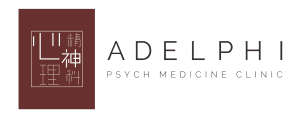Depression
Silent Suffering Through Tinted Glasses
If life can be pictured as a journey through one’s personal museum, walking the route and being involved in the creation of exhibits that signify life’s milestones, depression can perhaps be pictured as a person who was made to wear polarised sunglasses while going on this personal journey, seeing her/ his world through dark tinted lens.
Depression is a medical illness. It affects students, teenagers, national servicemen, working professionals, adults and the elderly in large numbers in Singapore. Depression affects mood and the brain’s cognitive functions, it erodes away at the joy of living, diminishes the appreciation of life’s goodness, robs one of her/ his personality, causes changes in performance and is associated with excessive alcohol and other mental disorders.
Depression Causes Suffering
People suffer because of depression, often the suffering is silent because the early phase of depression could be easily denied (e.g. labelled as being “mental weak” during national service), rationalised (e.g. that other people also have it, or it is necessary for growth during adolescence) or minimised (e.g. the irritability and temper outbursts are “hiccups that will just go away”). Mental health is not the only area affected in depression, a person’s physical health (e.g. metabolic syndrome, obesity) and other important psychosocial domains of functioning are also frequently adversely affected too.
Family members and friends may notice the initial subtle changes as depression begins. The symptoms and signs of depression include changes in sleeping pattern, increased irritability, unexplained decline in school and work performance, deteriorating memory, increased suspiciousness, changes in weight, having persistent thoughts of guilt, negativity, perceptual disturbances and feelings of being persecuted. If left untreated, depression may deteriorate and eventually overwhelms a person’s life.
Types of Depression
Many mental disorders have depressed mood in their syndromes. The Diagnostic and Statistical Manual of Mental Disorders (American Psychiatric Association 2013) listed various types of depression. These include, but are not limited to, “disruptive mood dysregulation”, “major depressive disorder”, “dysthymia”, “premenstrual dysphoric disorder”, “substance/ medication-induced depressive disorder” and “adjustment disorders”.
These disorders differ in their etiology, prevalence, clinical presentation, disease development, prognosis, comorbidities and treatment.
Symptoms of Depression
Symptoms of depression include:
- Feeling low
- Crying spells
- Excessive guilt
- Excessive suspiciousness
- Irritability
- Lack of energy
- Poor concentration
- Feeling fearful
- Excessive eating
- Loss of interest in enjoyable activities
- Social withdrawal
- Loss of sexual drive
- Having suicidal ideation
- Experiencing hallucinations
A Leading Cause of Disability
Depression affects people across all ages, it is already the leading cause of disability worldwide among young adults based on the potential years of productive life lost to disability. The World Health Organisation projected that by the year 2020, depression will become the leading cause of disability worldwide in both developed and developing nations. Thus, depression not only robs one of the ability to experience joy and healthy living, it is also a huge economic burden to family and society.
What Causes Depression
The causes of depression are multi-factorial. These include the presence and expression of genes that are influenced by gene-environment interaction (i.e. epigenetic regulation), early life adversity, imbalance of chemical neurotransmitters (e.g. serotonin, norepinephrine, epinephrine, dopamine), abnormalities in hormonal balance (e.g. hypothalamic-pituitary-cortisol pathway), chronic adverse psychosocial circumstances and functional anatomy abnormalities (e.g. blood flow changes to frontal lobes of the brain).
Depression Treatment
Treatment for depression involves treatment targeted at these etiological factors. Thus, psychotherapy, pharmacological therapy (i.e. medication) and social help to reduce the stress burden (e.g. change of hostile working environment) are often required for holistic management. Timely help from psychiatrist and therapist as well as support from loved ones are key to recovery.
Let Us Help You
Adelphi Psych Medicine Clinic provides holistic care treatment for your depression. We offer pharmacotherapy and a range of therapy services that include cognitive behavioural (CBT) and eye movement desensitisation reprocessing (EMDR). CBT is widely regarded as an efficacious treatment for mental health conditions while EMDR is a breakthrough therapy that offers relatively quick relief of emotional symptoms. CBT and EMDR are both listed under the Clinical and Practice guidelines for Mood and Anxiety Disorders with the Ministry of Health (Singapore).
For children and some individuals, it is not always easy to talk about one’s thoughts and feelings. It is especially difficult if one is experiencing depressive symptoms. Depression may ‘look’ different for different people. Some clients and patients have described it as a ‘dark hole’, ‘a grey road’, ‘a black tunnel’, drawing the image out and exploring it more deeply is like peeling back the layers, gaining more clarity and eventually even discovering that the image can transform itself. When there are no more words, art psychotherapy can offer a way to connect with oneself again.
Adelphi Psych Medicine Clinic can help you treat and manage your depression, contact us by filling in the form below.


